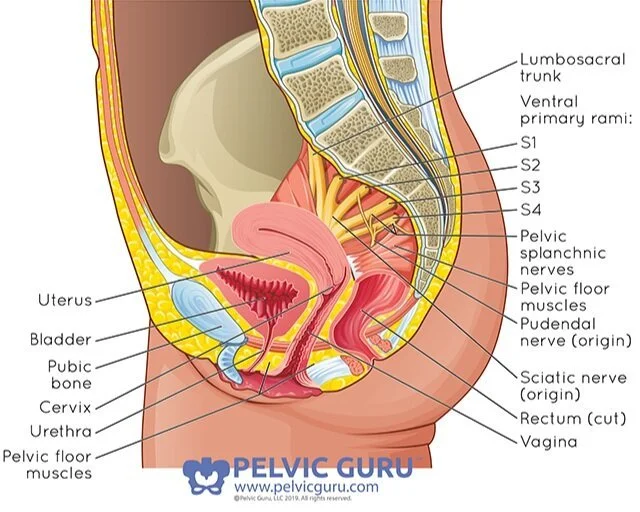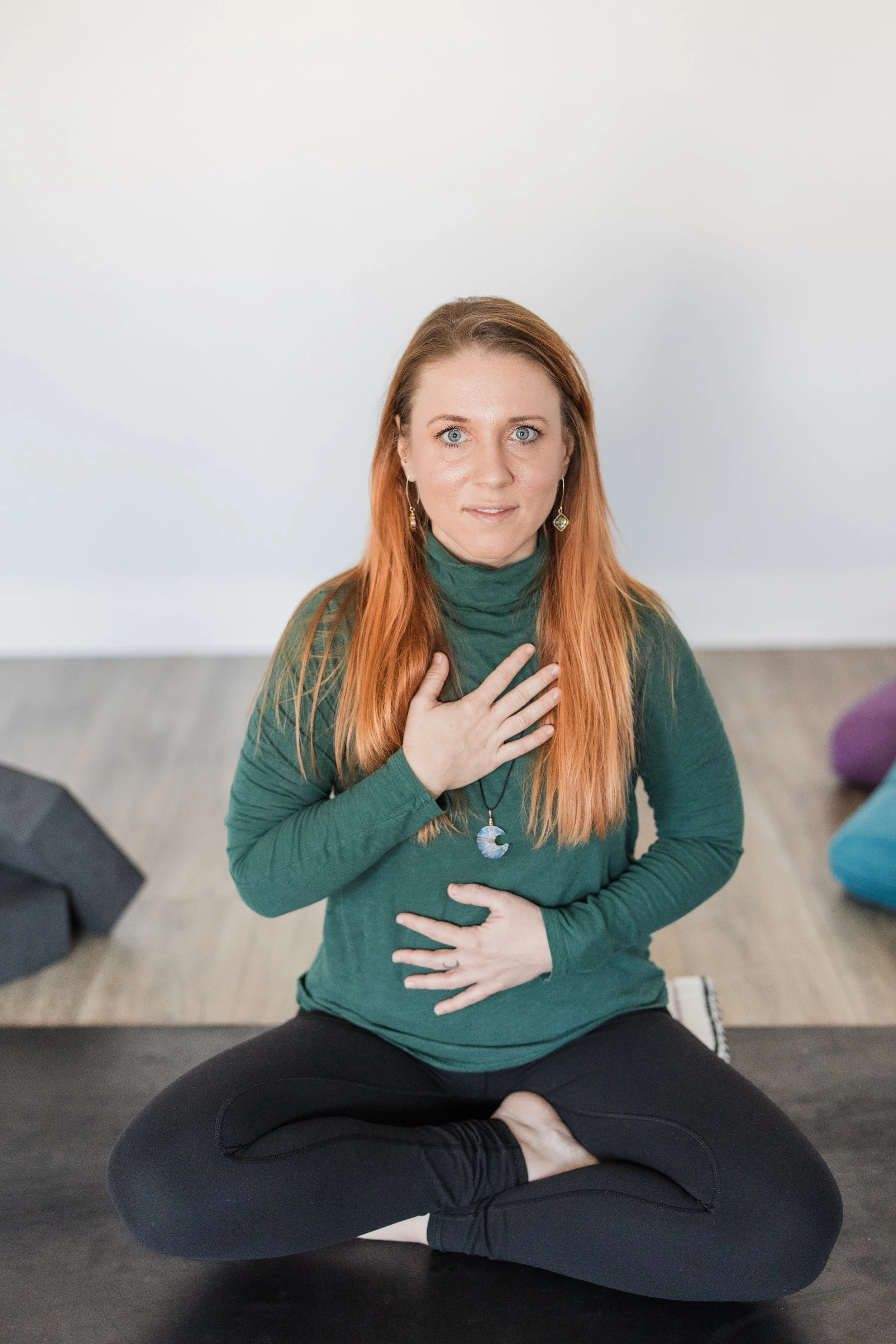
The Female Pelvis
The Female Pelvis
There are various diagnoses and issues which can arise within the pelvis of a person assigned “female” at birth. (Please note: all gender identities and expressions are absolutely honored and respected at Embodied Physical Therapy, any mention here of “male” or “female” is strictly mechanical description and reference of birthed anatomical parts that have not undergone reassignment surgeries. Please feel safe and open to discuss personal terminology with our Pelvic Health Professionals!)
Some terms you may hear in this neighborhood of the pelvic health world are: endometriosis (please see menstruating persons section here), coccydynia (tailbone pain), pudendal neuralgia (nerve damage/ irritation resulting in pain, discomfort, or numbness,) post-partum tearing/scarring (episiotomies) and lesions within the pelvic bowl, vulvodynia (vulvar pain), vaginismus (vaginal pain), PGAD (persistent genital arousal disorder), interstitial cystitis (bladder pain syndrome), dyspareunia (painful sex), post-hysterectomy, amongst various other diagnoses and medical terms that may or may not be familiar.
A common time for many women to be referred to a physical therapist (despite this still not being as often as one would hope!) is post-partum or after being pregnant. There’s much confusion for mama to experience as she’s starting to get a better understanding of her new body and how it’s healing. However the pregnancy and/or birth experience may be, pregnancy can cause some issues within the physical body which can be addressed so you can confidently return to your “pre-pregnancy” life. Please find further information in the “Post-Partum Pelvis” section.
Female pelvic pain is an undiagnosed epidemic. Often when experiencing pain during menses, they are met with one of two options responses: “it’s completely normal and a part of the female life” OR “here’s some birth control!” The issue with this, for most women, is that even if the birth control helps temporarily “manage” the symptoms— it is a superficial solution for a deep-rooted cause. Often times, diagnoses like Endometriosis (the growth of the uterine lining outside of the uterus during the menstrual cycle), heavy menstrual cycles, and even the skipping or change in your menstrual cycle are symptoms with causes that can be addressed and worked on through holistic dietary changes and lifestyle modifications. Treatments like Arvigo Abdominal Massage, visceral work, and myofascial release techniques have been studied with women who suffer from various conditions such as these, and the results are promising. Womb wellness work can (and should!) be a vital component to the menstruating person’s repertoire of self-care tools.
The aforementioned conditions can all be diagnosed and addressed through a detailed evaluation, internal and external assessment, and the mobility of tissue— as well as strengthening exercises and functional progressions to lead you to a functioning form.

Join Embodied Pelvis 101
In this self-paced course, connect to your own womb space through guided meditations, wellness practices and movement practices to connect to our pelvic floor and beyond.
What Should You Expect from Pelvic Floor Physical Therapy?
Pelvic health is a team approach between you and your physical therapist. Expect to be given a detailed, home program that should be integrated into your daily life, as well as different activities to do at home to best continue progress and improvements in your overall symptoms.
-
During an initial evaluation for pelvic floor therapy expect to spend some TIME. Together, you and your professional will go through a detailed history of your current needs. You will be asked detailed questions about your bladder, bowel, and sexual health, in conjunction with receiving a detailed education on your body and how/why your symptoms are manifesting. There is a full body musculoskeletal exam— where your hips, low back, and core are all assessed for any contributing dysfunctions. There is an internal pelvic assessment where the therapist will address any muscular dysfunctions within the pelvic bowl. They will also be able to assess the placement of internal organs and address any fascial restrictions or scarring which may be felt. (Please note: if an internal assessment is something that causes any issues, a Pelvic Health Specialist has the ability to address various ailments which can be done externally, as well!).
-
During follow up treatments, the pelvic health specialist will work with you to tailor your session to your body’s needs. This will work with integrating manual therapies such as hands-on body work, internal releases of the pelvic bowl, joint mechanics with specific exercises, and energy work— to best enable your body to heal. Expect to spend time with your therapist, as the work to understand your body and its specific needs for healing is a process. This is a holistic approach using mind/body medicine to help with relaxation, restoration, and strengthening within the pelvis and beyond.




